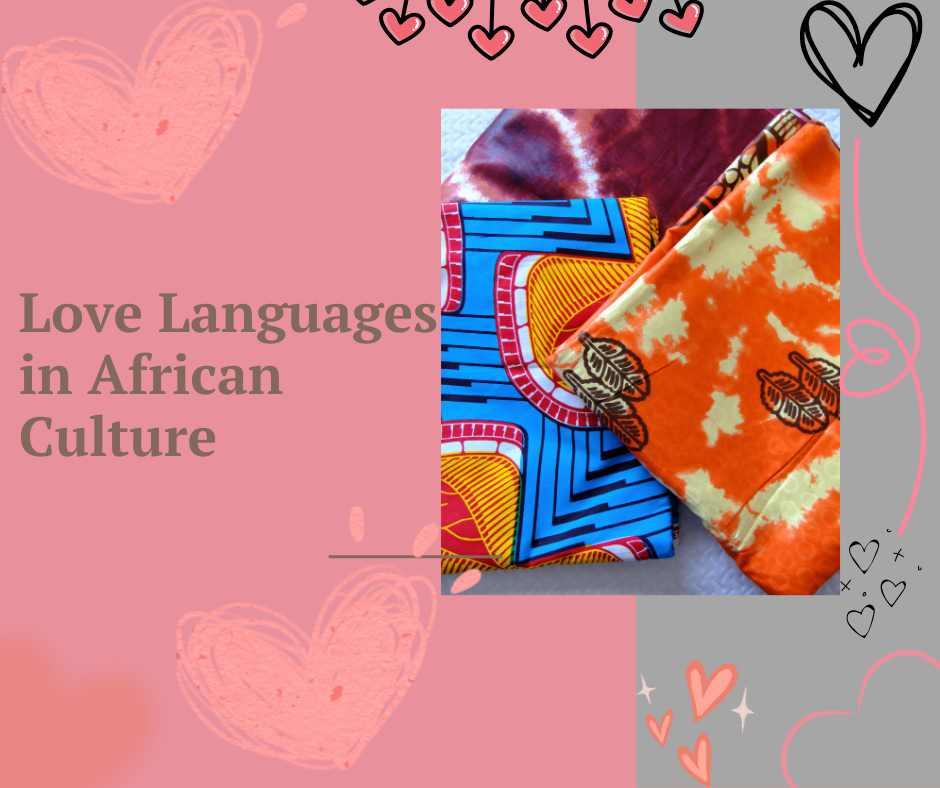1. Acts of Service: Showing Love Through Actions
In many African cultures, actions often speak louder than words. Acts of service are a primary love language, where individuals express care and affection by helping their loved ones. This could mean cooking a meal, assisting with chores, or supporting a partner during challenging times. For example, in Nigerian culture, a spouse might show love by taking on responsibilities to ease their partner’s burden. This love language emphasizes selflessness and the importance of contributing to the well-being of others.
2. Words of Affirmation: The Power of Spoken Love
Words hold immense power in African cultures, and verbal expressions of love are highly valued. Compliments, encouragement, and heartfelt conversations are common ways to show affection. In many communities, elders use proverbs and wise sayings to convey love and wisdom to younger generations. For instance, a parent might use affirming words to instill confidence in their child, while couples might express their feelings through poetic language or songs. This love language highlights the importance of communication in building strong, emotional connections.
3. Gift-Giving: Symbolic Gestures of Love
Gift-giving is a cherished love language in African culture, often used to express gratitude, appreciation, and love. Gifts are not always material; they can also be symbolic, such as offering a piece of jewelry, a handmade item, or even food. In some traditions, gifts are exchanged during significant milestones, such as weddings, births, or festivals. For example, in Ghanaian culture, the presentation of gifts during a marriage ceremony symbolizes the union of two families and the commitment to support one another. This love language reflects the thoughtfulness and generosity that are central to African relationships.
4. Quality Time: Building Bonds Through Togetherness
Spending quality time with loved ones is a cornerstone of African culture. Whether it’s sharing a meal, attending family gatherings, or participating in community events, being present is a powerful way to express love. In many African households, families prioritize spending time together, often engaging in storytelling, dancing, or simply enjoying each other’s company. For couples, quality time might involve going on walks, visiting relatives, or celebrating cultural traditions. This love language underscores the value of connection and shared experiences.
5. Physical Touch: Affection Through Connection
Physical touch is another important love language in African culture, though its expression varies depending on the community and context. Holding hands, hugging, and playful gestures are common ways to show affection among family members and couples. In some cultures, physical touch is also used to convey respect and solidarity, such as a handshake or a pat on the back. For example, in South African culture, the practice of ubuntu (humanity towards others) often involves physical gestures that reinforce a sense of belonging and care. This love language highlights the importance of warmth and closeness in relationships.
6. Respect and Honor: Love Through Reverence
In African culture, respect and honor are fundamental expressions of love. This love language involves showing reverence for elders, partners, and community members through actions and words. For instance, a younger person might kneel or bow when greeting an elder as a sign of respect. In romantic relationships, partners often demonstrate love by honoring each other’s roles, opinions, and contributions. This love language reflects the deep cultural value placed on dignity and mutual respect.
7. Community-Oriented Love: Love Beyond the Individual
African cultures often emphasize collective well-being over individual needs, and this extends to the way love is expressed. Community-oriented love involves caring for not only one’s immediate family but also extended relatives, neighbors, and even strangers. Acts of kindness, such as sharing resources or offering support during difficult times, are seen as expressions of love. This love language reinforces the idea that love is not limited to romantic relationships but extends to the broader community.
Conclusion
Love languages in African culture are as diverse and vibrant as the continent itself. From acts of service and words of affirmation to community-oriented love, these expressions of affection are deeply rooted in tradition and values. By understanding and embracing these love languages, we can gain a deeper appreciation for the richness of African relationships and the ways they nurture connection, respect, and unity.
